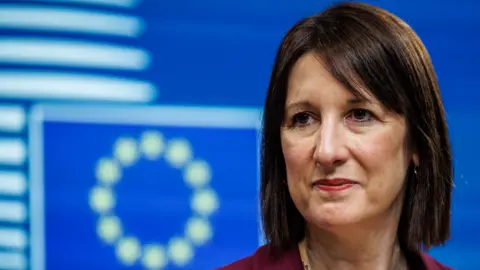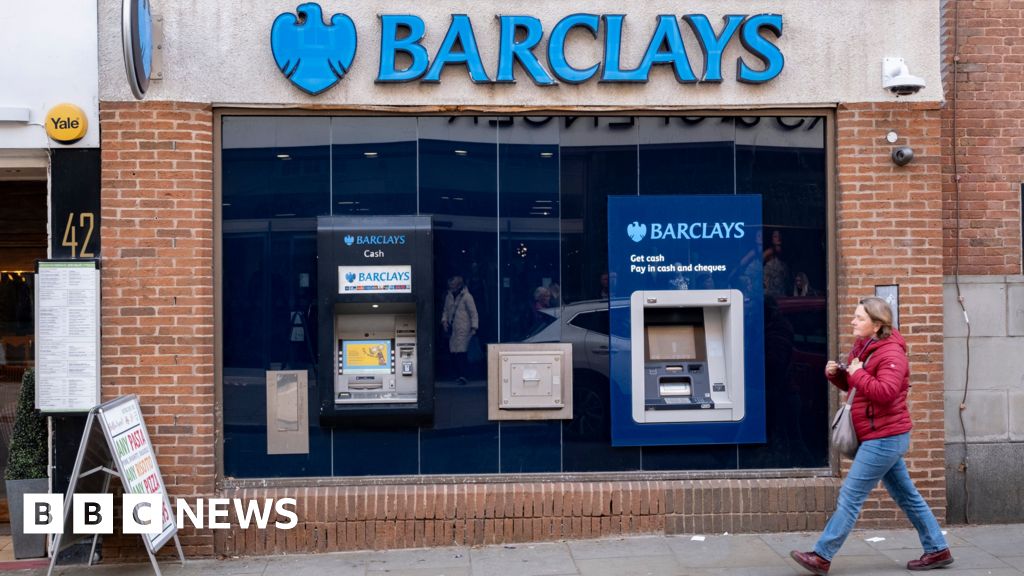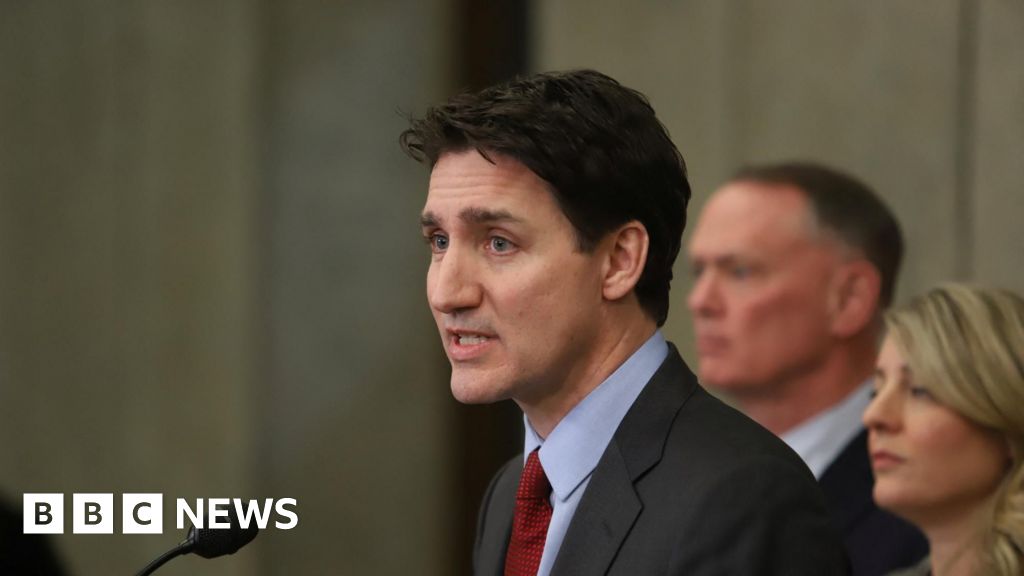
 EPA
EPA
The UK government is considering a far more extensive "reset" of post-Brexit relations with the European Union (EU) after Chancellor Rachel Reeves met with European finance ministers to discuss the future.
Labour has ruled out re-joining the trade bloc, but farm and food export barriers could be removed and help provided to firms with complex supply chains while European leaders want to put youth mobility back on the table.
Negotiations on a new trading relationship would begin "in the new year", Reeves said.
The Conservative Party said it "looks like Labour's plan is to follow EU rules for nothing in return".
Following a speech to Eurogroup finance ministers in Brussels - the first given by a UK chancellor since Brexit - Reeves repeated that the UK would not rejoin the single market and customs union or Freedom of Movement, as outlined in the Labour manifesto.
But she did not rule out keeping UK laws in line with EU regulations for farm, food and goods exports, a policy known as "dynamic alignment".
The UK has previously said it is seeking a veterinary agreement, which could mean meat, fish, dairy, and live animals face fewer checks when crossing a UK-EU border.
Reeves also did not suggest that demands for an extension of a soon-to-expire fisheries deal were a barrier to a closer Brexit relationship.
Extending the Brexit fisheries deal beyond 2026 is likely to be a condition for any wider reset.
Meanwhile, the EU has said it would like to see a scheme for young Europeans to live and work both there and in the UK - something Prime Minister Sir Keir Starmer has ruled out in the past.
The EU has now refined the plan as a "Youth Experience" scheme which Spain's economic minister Carlos Cuerpo told the BBC could be "put on the table" by the bloc and that the UK could benefit to as part of a "win win".
Germany's finance minister Jorg Kukies, who met the chancellor in Brussels, said the dialogue was a "good signal" for better trade between the UK and the EU.
"The intensity of trade with the UK has gone down quite substantially, if I measure it against our trade partners in the world," he said. "Any progress would be highly welcome."
The British Chambers of Commerce (BCC), which represents about 50,000 businesses, said that in order for the economy to grow "we must export more" but UK firms "are struggling under huge regulatory and paperwork burdens".
Closer alignment between the UK and Europe on, for example, food standards could complicate any attempt by Britain to forge closer relations with the US on Donald Trump's re-entry into the White House in January.
The President-elect has already threatened to impose tariffs of up to 20% on all goods imported into the US.
Ahead of the chancellor's speech, shadow business secretary Andrew Griffith urged her to "jump on a plane to the US and talk to Trump about getting a US-UK trade deal done, not trying to take Britain backwards into the slow growth EU."
Carsten Brzeski, global head at financial services company ING Research, told the BBC's Today programme that European leaders "clearly" had an interest in working more closely with the UK government as a result of Trump's election.
He said that potential tariff changes could prove a "threat" to European economies such as Germany, who export a great deal of goods to the US.
"It's also about Donald Trump's idea to cut taxes and do deregulation in the US. That could also make the US economy much more attractive than the EU economy and could somewhat cannibalise the growth potential of Europe," Mr Brzeski said.
Eelco Heinen, the Dutch finance minister, described the UK as an important trade partner, but he added: "I'm not going to renegotiate Brexit."
EU sources said that many veterans of the fractious Brexit era in the European Commission were weary of reopening talks.
Labour has said it is committed to implementing post-Brexit agreements struck under the previous Tory government.
These include the Windsor Framework, which covers trade between the UK and Northern Ireland.
But Reeves told finance ministers: "The reset in relations is about doing what is in the best interests of our shared economies and those that depend on it.
Last month, in a highly unusual move, the governor of the Bank of England, Andrew Bailey, said that the UK must "rebuild relations" with the EU.
The governor has avoided commenting on Brexit because of the Bank's independence from Westminster politics.
"The impact on trade seems to be more in goods than services," Mr Bailey said.
"But it underlines why we must be alert to and welcome opportunities to rebuild relations while respecting that very important decision of the British people."
The export of goods, such as in food and farming, has been impacted by new trade barriers. But services, including banking, have performed better than expected.


Sign up for our Politics Essential newsletter to read top political analysis, gain insight from across the UK and stay up to speed with the big moments. It'll be delivered straight to your inbox every weekday.

 Movie
Movie 1 month ago
58
1 month ago
58 



![Presidents Day Weekend Car Sales [2021 Edition] Presidents Day Weekend Car Sales [2021 Edition]](https://www.findthebestcarprice.com/wp-content/uploads/Presidents-Day-Weekend-car-sales.jpg)



 English (United States)
English (United States)